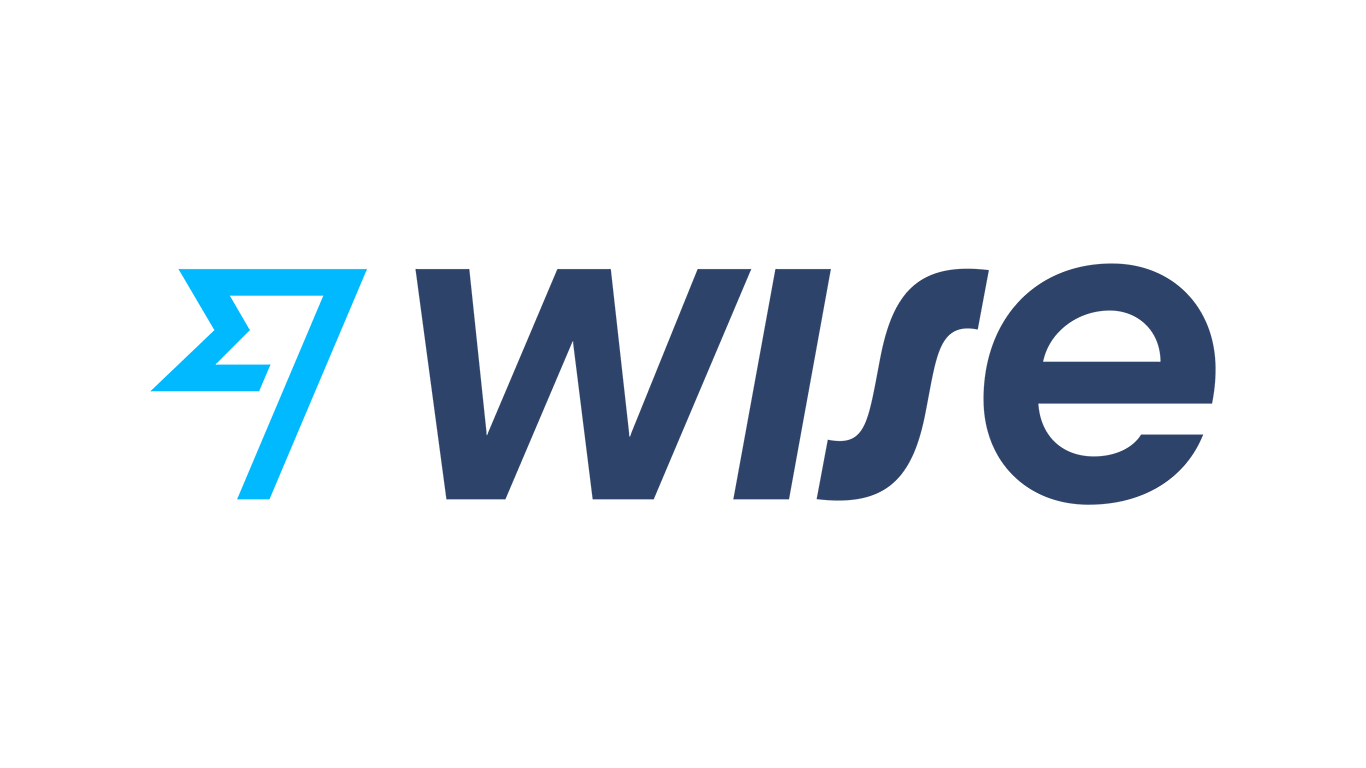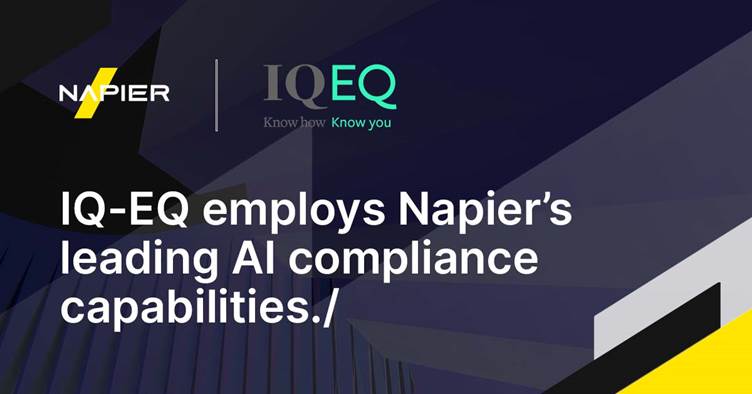Published
- 05:00 am

Ecospend, the UK’s leading open banking payment provider, has today announced its partnership with Whisky Partners. The firm will begin processing customer payments using Ecospend’s account-to-account payment services.
Whisky Partners leads the way in UK and European whisky investments. Its service provides a way for customers to invest in whisky casks, as well as providing expert advice on buying and selling whisky for a maximum return on investment.
Ecospend’s pay-by-bank technology will enable Whisky Partners to receive instant account-to-account payments, which will significantly reduce the platform’s processing costs. The partnership will also enable a range of new payment functionalities for Whisky Partners’ customers, including:
- A ‘pay-by-bank’ option on their website which will also allow customers to top up their account instantly using Ecospend’s e-commerce payments technology
- Biometric authentication which will drastically reduce fraud, and provide a payment option without the need to input personal details
All payments will bypass payment processing providers like Visa or Mastercard, resulting in an online payment that is a fraction of the cost of a card payment. Furthermore, every transaction is authorised by bank level security for a much more secure payment process, reducing the risk of fraud.
James Hickman, COO, Ecospend, comments:
“Our partnership with Whisky Partners marks an exciting moment for Ecospend, as we introduce all the benefits of open banking payments to a new sector. By using our account-to-account payment services, not only will Whisky Partners be able to offer customers a smoother and more efficient payments experience, but it will also see them significantly reduce the cost of processing traditional card payments.”
Louise Robinson, COO at Whisky Partners comments:
“As a business, our aim has always been to make cask ownership as simple as possible. Partnering with Ecospend allows us to streamline our payment system, enabling a smoother and more secure purchasing experience for all our clients. By removing the traditional complications of manual bank transfers and avoiding the costs involved with processing card payments, Ecospend was the perfect fit for our business and we’re excited to see how our partnership develops over time.”
Related News
- 01:00 am

Effectively develop and govern machine learning models for appropriate implementation and to help overcome issues surrounding data and explainability.
The potential of machine learning (ML) for model development has grown vastly over the last few years and financial institutions need to ensure that they are able to capitalize on the significant benefits of cost and time reduction that ML can offer, and gain every competitive edge they can. Moreover, the expected rise in regulation around the use of this technology as a result of it being implemented more widely across the financial industry makes it critical for firms to develop a clear understanding of what this means for their practices and gain the practical knowledge required, to ensure their models remain compliant. Lastly, as ML models require a high level of investment and expertise, it is crucial for financial institutions to implement them appropriately to secure a high ROI from this investment.
The GFMI Development, Implementation and Management of ML Models conference will offer case studies on how financial firms have overcome challenges when applying machine learning in model development. The significant challenges that will be addressed will be of data bias and explainability. Experts in the field will discuss solutions such as the introduction of hyper parameters, the utilization of traditional models and ensuring adequate infrastructure to monitor machine learning models is in operation. The focus will also be drawn to ensuring attendees gain practical knowledge to ensure that their models will fall in line with regulations, allowing for the establishment of more robust and accurate models.
Attending This Premier marcus evans Conference Will Enable You to:
Identify the appropriate context of when to deploy machine learning for model development
Analyse the best practices to manage and cleanse data
Examine why issues of explainability and interpretability often occur for model development teams and learn how to combat these challenges
Optimize machine learning compliance with regulation
Investigate the necessary frameworks that need to be developed for machine learning models
Explore how traditional models can co-exist alongside machine learning models
Best Practices and Case Studies from:
Arthur Maghakian, Managing Director, Data Science and Machine Learning, Goldman Sachs
David Wang, Managing Director, Artificial Intelligence and Financial Engineering, State Street Corporation
Surnjani Djoko, Senior Vice President, Specialized Analytic Group Manager, Citi
Stefan Szilagyi, Model Risk Examination Manager, Federal Housing Finance Agency
Nengfeng Zhou, Senior Lead Quantitative Analytics Consultant, Wells Fargo
Ankur Goel, Senior Vice President, Head of Consumer Modeling, PNC
For more information and registration discounts please contact: Ms Ria Kiayia, Digital Media and PR Marketing Executive at riak@global-fmi.com or visit: https://bit.ly/3DRSnWx
Related News
- 03:00 am

ASA, an embedded fintech solution that connects financial institutions with customer-facing fintechs in a secure, compliant and easy-to-implement marketplace, today shared trends expected to most significantly impact the financial services landscape next year.
The rise in embedded fintech. As we continue to face thinning margins, skyrocketing customer expectations, quickly evolving technology and an increasingly competitive marketplace, banks and credit unions must quickly determine how to retain relevance and prominence in customers’ and members’ financial lives.
In response, more financial institutions will embrace embedded fintech, extending their brand and presence into everything the customer does in e-commerce. To do so successfully, banks and credit unions will look to a collaborative banking model.
Collaborative banking allows institutions to connect with customer-facing fintechs via digital rails that anonymize and tokenize all customer data. This removes the regulatory risk traditionally associated with bank-fintech partnerships and enables unprecedented innovation.
An influx of fintech regulation. Keep an eye on the regulatory and compliance landscape. With recent challenges exposed in the Buy Now Pay Later (BNPL) space and Banking as a Service model, more will prioritize account holder permissioned, anonymized, secure data transactions to enable access while reducing risk. The narrowed compliance focus for those who have pursued Banking as a Service especially will be a complex task as the players face increased regulatory scrutiny. Many will find themselves looking at alternatives to gain market share and meet customer needs.
The increasing importance of customer choice. Open banking has demonstrated the critical imperative of putting the account holder in control of their data and finances. However, most of the control that has been granted today is largely one-sided; the customer can choose what technology they want, but that choice almost always results with the account holder having to share data or open accounts outside of their financial institution. More emphasis will be placed on giving customers and members control over not only the technology they adopt, but which institution (and therefore the type and level of trust and service) backs it.
“Despite recent challenges, the financial services industry continues to be filled with opportunity and innovation. It’s time for financial institutions and fintechs to reconsider how they work together,” said Landon Glenn, CEO and founder of ASA. “Next year, we expect to see the rise of embedded fintech, backed by a collaborative banking model. This will help solve increasing compliance and risk challenges while empowering the customer with greater control and choice.”
Related News
- 03:00 am

InterPrice Technologies, Inc., a treasury capital markets funding platform, announced today the closing of its Series A funding. The $7.3 million investment was co-led by Nasdaq Ventures and DRW Venture Capital, with participation from existing investors including Bowery Capital.
InterPrice’s solutions streamline bond, commercial paper, and loan pricing indications into intuitive dashboards across currencies and financing products. By normalizing data across all banking partners, the company’s technology eliminates dependencies on time-consuming manual processes and enables corporate issuers to make informed financing decisions while expanding the reach of participating financing partners.
“We have been incredibly fortunate to work with some of the most active corporate treasury teams and underwriters over the past two years,” said Olga Chin, Founder and CEO of InterPrice Technologies. “Our clients have provided extensive and enthusiastic support for our solutions, and we wouldn’t be where we are today without their confidence in our team. We are now ready to scale our company and I can’t think of better partners than Nasdaq Ventures and DRW for this next step in our journey.”
Since InterPrice’s commercial launch in 2020, the company has on-boarded multiple Fortune 500 and global corporate issuers, such as HP Inc., McCormick & Company, and Takeda Pharmaceuticals, and over a dozen underwriters onto its platform. With this additional funding, the company will accelerate product development, extend asset coverage, and expand its presence in the United States and internationally.
“InterPrice fundamentally changes the way corporate issuers interact with their data,” said Gary Offner, Senior Vice President and Head of Nasdaq Ventures. “Rich and reliable indicative new issue pricing data, delivered through an elegant platform in real-time, can unlock actionable insights that would otherwise remain trapped among opaque, disparate sources. Nasdaq is incredibly excited to lead the company’s Series A funding and to partner with Olga and the InterPrice team.”
“InterPrice has already proven itself to be a powerful partner to some of today’s largest debt issuers,” said Kim Trautmann, Head of DRW Venture Capital. “As a participant in capital markets ourselves, we quickly recognized the value created by InterPrice’s workflow automation and analytic tools, which streamline decision-making, increase efficiency and enable transparency. I am thrilled to be joining its board and excited to work alongside Olga and her talented team to accelerate growth as the platform expands to include new asset classes.”
Related News

Rohini Gupta
Director and Lead Regulatory Advisor at FinregE
As digital technologies evolve at a fast pace, organisations are having to work harder than ever to prevent lagging behind in a competitive market – they constantly nee see more
- 05:00 am

The electronification of Fixed Income trading continues unabated according to the most recent Sell-Side Fixed Income Expert Network Report, produced by Acuiti in association with valantic FSA. Over 75% of the Expert Network, a group of senior sell-side fixed-income executives from across the globe, reported that flow to electronic trading platforms from their client base had increased during the first half of 2022, with over a quarter of the network pointing to a significant increase.
Volume spikes and volatility over the last 12 months have led to continued changes in execution methods. 41% of respondents noted a shift in previous relationships between trade size and execution method, with larger trades executed by voice but smaller trades electronically.
“Many market participants noticed this pattern during the Covid-19 volatility of March 2020 and it now seems to be a fairly settled characteristic of fixed income execution during periods of volatility.” according to Andy Browning, Head of Electronic Trading, at valantic FSA.
While the recent volatility has brought benefits to the sell side in terms of higher trade volumes, many have faced significant operational challenges. Members of the Expert Network reported that the major operational pain points caused by volatility were seen in risk management and hedging.
Some trading desks tended to revert to manual management of hedging during periods of volatility. This was driven by fear that firms’ automation of this function was not robust enough to keep the right hedging ratios in turbulent markets.
Will Mitting, Managing Director of Acuiti noted “The expectation was that this behaviour would change back to automation during more becalmed conditions. In the long term, executives across the sell-side are targeting greater levels of automation in the hedging process.”
Almost 60% of respondents said that clients were asking for more algorithms to use in their fixed-income operations, and almost a third reported demand for algos used to hedge positions, reinforcing the drive towards hedging automation.
The report also explores client preferences for third-party and dealer e-trading platforms, the use of messaging systems, and how they are addressing barriers to investment.
Related News
- 07:00 am

Wise, the global technology company building the best way to move and manage money around the world, today announces at the Singapore Fintech Festival that Wise has received a Capital Markets Services licence from the Monetary Authority of Singapore. This will enable Wise to bring its new investment product, Assets, to Singapore in the coming quarters.
Currently available in the UK, Assets gives Wise business and personal customers more choices about how their money is held, and potentially earn a return on their money in over 50 currencies. Unlike money held in traditional investment accounts, Assets give customers access to the majority of their money, meaning they can hold their balance in Assets, and still spend and send the money when they need it.
The licence in Singapore follows the grant of a similar investment licence from the Estonian Financial Supervision and Resolution Authority (Finantsinspektsioon) last week (25 October).
People and businesses hold £6.8bn in Wise Account balances globally. By offering investment through the Wise Account, Wise seeks to create a more convenient experience for people and businesses who send, hold and receive money in multiple currencies to have the option to potentially earn a return on their funds — all in one place.
Nilan Peiris, Chief Product Officer, Wise, said: “We're excited to have secured the licence as our first step towards bringing Assets to Wise customers in Singapore, making this the first location outside Europe where we’ll be offering this product.
Assets are something new we’ve built to give our customers more ways to manage their money, and we look forward to rolling this out to customers here. This also reflects Wise’s continued commitment to Singapore, our APAC hub, where by year-end we will have doubled in size to hit over 400 employees.”
Related News

Jamil Ahmed
Distinguished Engineer at Solace
SWIFT is the world’s leading provider of secure financial messaging services and the standard method of international fund transfers. see more
- 03:00 am

Napier, provider of leading anti-financial crime compliance solutions, announced that investor services group IQ-EQ is upgrading its screening capabilities to Napier’s AI-enhanced Client Screening.
Napier’s Client Screening solution will further enhance IQ-EQ’s existing systems by automatically screening clients at relevant intervals against sanctions, Politically Exposed Persons (PEP) lists, and other key watchlists. The AI capabilities will also help IQ-EQ to reduce volumes of false positives and enable faster screening.
IQ-EQ provides a range of compliance administration, asset, and advisory services to a global client base that includes 11 of the world’s top 15 private equity firms. Their portfolio also holds assets under administration exceeding US$750 billion and across 24 jurisdictions.
Sally Alayarian, Group Chief Risk Officer at IQ-EQ, said: “At IQ-EQ we help global investors focus on investing and preserving capital in a sustainable and compliant manner. With several brands under our umbrella and across global markets, we often find data silos which make our screening processes more challenging.
With Napier’s solution, we will gain a significant edge as we can roll out bulk screening across the Group and leverage the solution’s impressive AI capabilities to reduce false positives. This will contribute greatly to our operational efficiencies in our compliance efforts, and help us serve our client base more efficiently, while ensuring we are not in breach of sanctions.”
Napier’s solution uses natural language processing and advanced fuzzy matching algorithms to reduce false positives helping organisations save time and focus on real alerts.
Cian Harrington, Global Head of Client Transformation at Napier said: “We are proud to support IQ-EQ and their commitment to combatting financial crime. Our latest generation multi-organisational solution helps solve for complex challenges such as those faced by the financial services industry, and we look forward to reinforcing our partnership with this implementation.”
Napier’s highly configurable financial crime compliance platform is relied upon by a variety of market participants, including banks, payment providers, asset managers, FX specialists, insurance firms, and other regulated institutions globally.
Related News
- 05:00 am

Today, TIBCO has announced it was named a Leader in the 2022 GigaOm® Radar for Data Virtualisation: Enterprise Vendors. GigaOm evaluated the TIBCO® Data Virtualisation application, which received a Leader ranking.
"We are immensely proud of being named a Leader in the GigaOm Radar, as it evaluates a vendor's ability to execute, roadmap, and capacity to innovate, all of which are critical success factors to our business," said Matt Quinn, general manager, TIBCO, a business unit of Cloud Software Group. "GigaOm Radar is based on forward-looking analyses that emphasise the value of innovation as a differentiator, as opposed to simply market share; its results carry immense credibility in the market."
The TIBCO Data Virtualisation capabilities, as part of the broader TIBCO platform, support the data fabric journey that customers require to combine, provision, and use their enterprise data. By orchestrating and facilitating access to varied data sources from multiple points within an organisation, the solution delivers datasets in a unified and logical data layer, where users can perform better data analysis and create actionable insights in real-time.
According to the GigaOm Radar, TIBCO is at the front of the data virtualisation pack with its strong feature set, platform design, and well-thought-out data management capabilities. The report showcases the technical depth of the TIBCO Data Virtualisation offering and highlights its continual focus on innovation and development.
According to the GigaOm report, "TIBCO has positioned itself as a data fabric champion. It contains all the essentials – connecting to sources, discovering data, transforming it with graphical modelling, and publishing it in a semantic layer of data services – for success… TIBCO's architecture is primed for more centralised (and decentralised) use cases for readying disparate data for consumption."
Key metrics used to evaluate the different vendors across the report included user-friendliness, flexibility, automation, innovation, and cloud-native capabilities.









